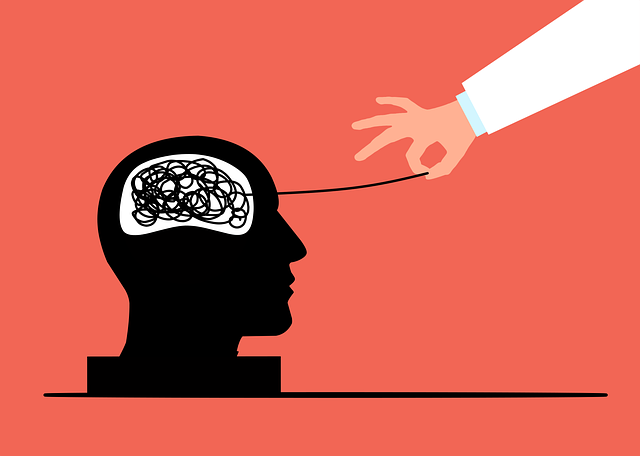Media portrayal significantly shapes public understanding of mental health, with positive depictions fostering empathy and reducing stigma, while negative stereotypes can hinder access to support services like Broomfield Gambling Therapy. Targeting young audiences, who are highly impressionable, requires balanced narratives highlighting recovery stories and evidence-based therapies. Broomfield Gambling Therapy stands out for its holistic approach, empowering individuals through comprehensive programs that address addiction's root causes. Transforming media portrayal of mental illness requires collaboration between outlets, professionals, and communities to create authentic, empathetic content featuring diverse characters and recovery stories.
Mental illness representation in media significantly impacts public perception and understanding of these conditions. This article delves into the challenge of accurate portrayal, exploring how media reflects—and often misrepresents—mental health issues. We present a case study on Broomfield Gambling Therapy, showcasing positive media representation strategies. Furthermore, we discuss essential steps towards promoting empathetic content, emphasizing collaboration to shape a more informative narrative. By examining these approaches, we aim to enhance the way mental illness is depicted in the media.
- Understanding the Impact of Media Portrayal on Mental Health Perception
- Exploring the Current State: How Media Reflects (and Misrepresents) Mental Illness
- Broomfield Gambling Therapy: A Case Study in Positive Representation
- Strategies for Promoting Accurate and Empathetic Mental Health Media Content
- The Road Ahead: Collaborating to Shape a More Informative Media Narrative
Understanding the Impact of Media Portrayal on Mental Health Perception

Media portrayal significantly shapes public perceptions about mental health, often influencing how individuals understand and respond to various conditions. Positive and accurate representations can foster empathy, reduce stigma, and encourage those struggling to seek help. Conversely, negative or stereotyped depictions can perpetuate misunderstandings, leading to fear, discrimination, and potential avoidance of much-needed support services like Broomfield Gambling Therapy. This impact is particularly pronounced in young audiences, who are impressionable and may internalize media messages as factual beliefs about mental illness.
Understanding the power of media lies in adopting “Mind Over Matter Principles” that promote healthy thinking patterns and emotional resilience. By presenting balanced narratives that highlight recovery stories and emphasize the effectiveness of evidence-based therapies, such as those offered at Broomfield Gambling Therapy, media can play a crucial role in boosting confidence and encouraging individuals to take control of their mental health. Additionally, focusing on mood management techniques and the importance of seeking professional help early can significantly contribute to a more supportive societal landscape for people facing mental health challenges.
Exploring the Current State: How Media Reflects (and Misrepresents) Mental Illness

In today’s media landscape, the representation of mental illness is a topic that deserves scrutiny. Media outlets play a significant role in shaping public perception, and their portrayal of mental health conditions can either educate or mislead audiences. Currently, there is an ongoing debate about how accurately media reflects the complexities of mental illness, with some productions offering nuanced insights while others perpetuate stereotypes.
The media’s approach to mental health often falls into two extremes. On one hand, some platforms are taking steps towards more realistic and empathetic storytelling, shedding light on various conditions like anxiety, depression, and even less-discussed disorders. This shift can be attributed to the growing awareness and acceptance of mental wellness issues. Conversely, sensationalized portrayals in movies and television shows sometimes reduce complex illnesses to mere plot devices, reinforcing outdated myths. For instance, the depiction of gambling addiction as a fleeting, dramatic struggle without exploring underlying causes or long-term effects, as seen in some Broomfield Gambling Therapy scenarios, can be misleading. Encouragingly, initiatives focused on mental wellness podcast series production are emerging, aiming to provide a platform for open discussions and personal narratives, promoting understanding and mood management through positive thinking.
Broomfield Gambling Therapy: A Case Study in Positive Representation

Broomfield Gambling Therapy stands as a shining example of positive mental illness representation in media and popular culture. This therapy organization focuses on gambling addiction, offering specialized treatment and support to individuals struggling with this specific issue. By presenting a nuanced and humanizing portrayal of those affected by gambling disorders, Broomfield challenges stereotypical depictions often found in the media.
Through its comprehensive approach, the therapy center not only addresses the underlying causes of gambling addiction but also emphasizes the importance of emotional intelligence and coping skills development. They organize stress management workshops, providing tools for clients to navigate their mental health journeys effectively. This holistic strategy ensures that individuals not only overcome their addiction but also gain valuable life skills, fostering long-term recovery and improved well-being.
Strategies for Promoting Accurate and Empathetic Mental Health Media Content

Creating media content that accurately and empathetically portrays mental illness is a powerful tool for challenging stereotypes and promoting understanding. This can be achieved through diverse storytelling, ensuring characters with mental health struggles are three-dimensional and not defined solely by their condition. Collaborating with mental health experts like those at Broomfield Gambling Therapy can add authenticity to scripts, providing insights into real-world challenges and recovery journeys.
Incorporating Conflict Resolution Techniques and Depression Prevention strategies into narratives can humanize the experiences of individuals with mental health issues. By showcasing characters navigating these struggles through effective emotional well-being promotion techniques, media platforms can contribute to a more compassionate society. This approach encourages viewers to see beyond the illness and recognize shared humanity, fostering empathy and support for those facing mental health challenges.
The Road Ahead: Collaborating to Shape a More Informative Media Narrative

The path forward lies in a collaborative effort between media outlets, mental health professionals, and communities to shape a more accurate and informative narrative surrounding mental illness. By fostering open dialogue and embracing diverse perspectives, we can move away from stigmatized representations and create content that promotes understanding and empathy. This collaboration should involve mental health experts providing guidance on the ethical portrayal of various conditions, ensuring storylines are nuanced and avoid simplistic stereotypes.
Media organizations have a significant role to play in this process by integrating emotional well-being promotion techniques into their programming. This can include featuring characters with diverse mental health experiences, showcasing recovery stories, and providing resources for viewers seeking support. For instance, Broomfield Gambling Therapy could collaborate with media to highlight the impact of gambling disorders and offer insights on effective risk assessment techniques for mental health professionals. Such partnerships have the potential to reach vast audiences, influencing public perception and fostering a culture of care and awareness.
Media representation of mental illness plays a pivotal role in shaping public perception and understanding. By examining the current state of media portrayal, recognizing successful initiatives like Broomfield Gambling Therapy, and implementing strategies for accurate content creation, we can foster more empathetic narratives. Collaboration between media professionals, healthcare providers, and advocates is essential to ensure a positive shift, ultimately reducing stigma and enhancing support for those facing mental health challenges.














